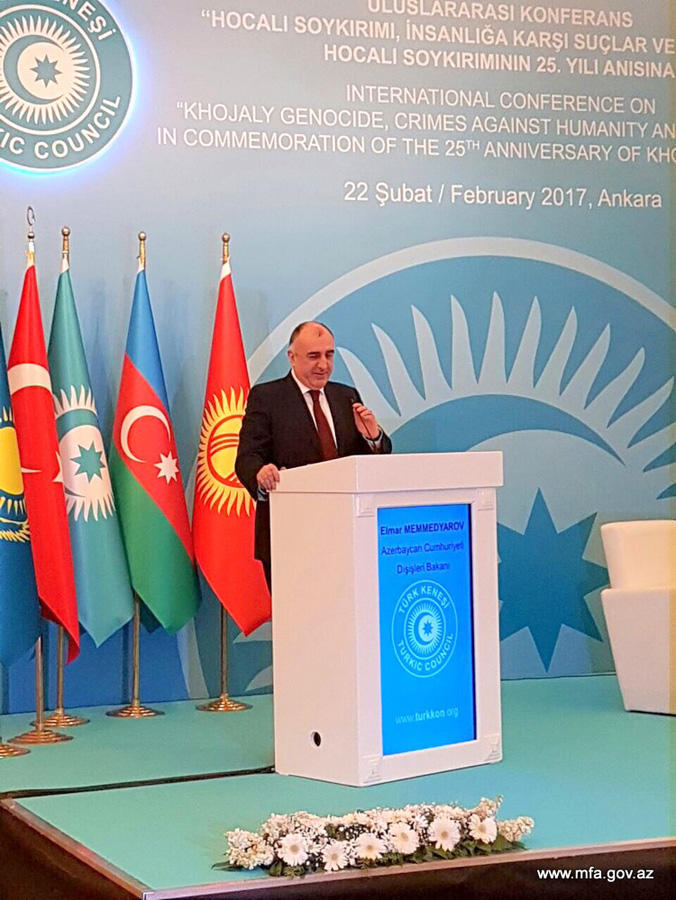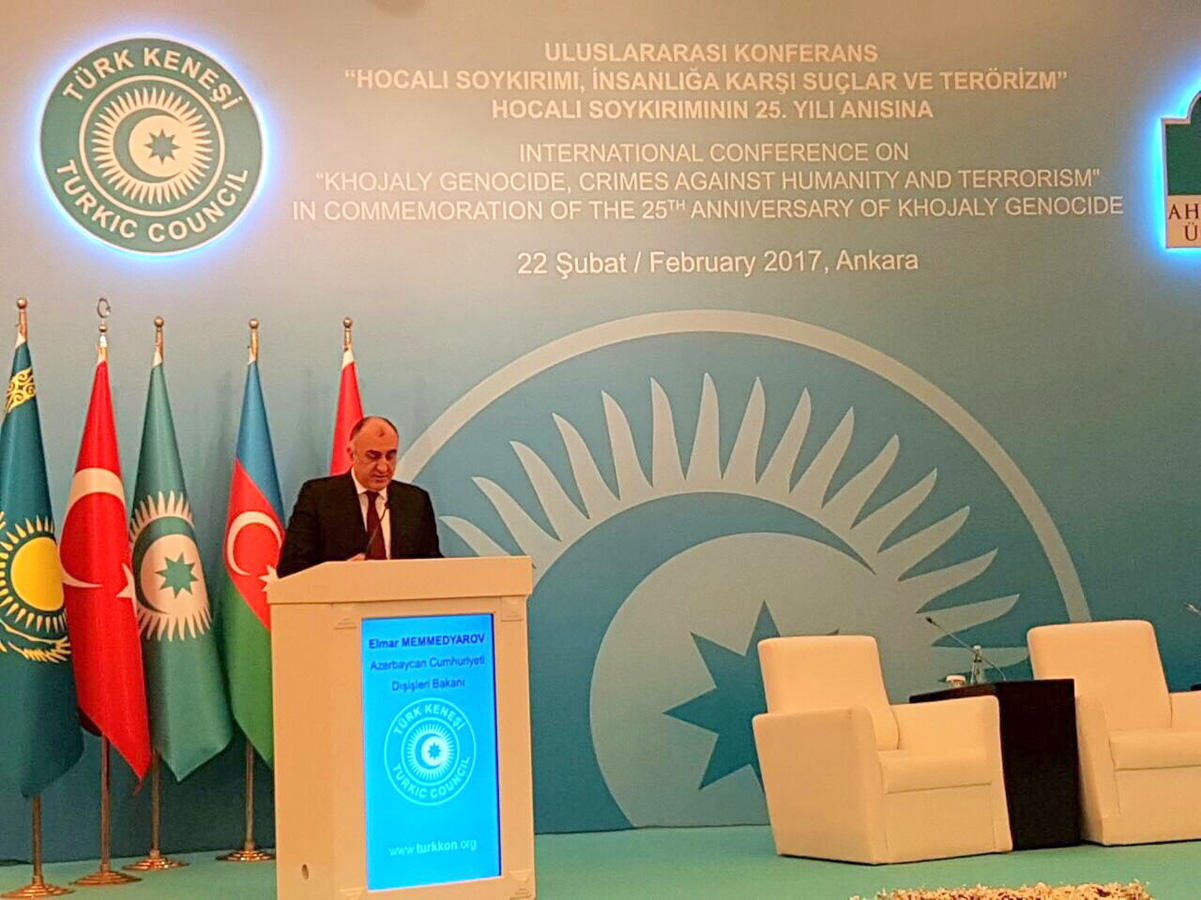Baku, Azerbaijan, Feb. 22
Trend:
The unresolved Armenian-Azerbaijani Nagorno-Karabakh conflict is a serious threat to peace, security, stability and comprehensive cooperation in the South Caucasus region, Azerbaijani Foreign Minister Elmar Mammadyarov said.
He made the remarks Feb. 22 in Ankara at the international conference “Khojaly Genocide, Crimes Against Humanity and Terrorism.”
“Azerbaijan’s territorial integrity recognized by the international community has remained violated over the years as a result of Armenia’s occupation policy,” Mammadyarov said. “More than one million Azerbaijanis are refugees and IDPs. Ethnic cleansing was carried out against the Azerbaijani people, all the norms and principles of international law were violated.”
“The position of the international organizations regarding the conflict is clear,” he noted. “The UN Security Council adopted four resolutions demanding unconditional withdrawal of the Armenian Armed Forces from the Azerbaijani territories. Unfortunately, none of the resolutions has been implemented so far.”
Mammadyarov went on to add that Azerbaijan stands for fair and peaceful settlement of the Nagorno-Karabakh conflict, and this position remains unchanged.
The Armenian-Azerbaijani conflict should be settled within the principle of territorial integrity of Azerbaijan, he said.
The early settlement of the conflict in accordance with the norms of international law will put an end to injustice, contribute to peace and stability in the South Caucasus region, Mammadyarov noted.
The Khojaly genocide is an inseparable part of Armenia’s aggressive policy against Azerbaijan, he said, adding that the genocide is yet another example of the ruthless and brutal policy of ethnic cleansing carried out over the years by the Armenian extremists against the Azerbaijani people.
The conflict between the two South Caucasus countries began in 1988 when Armenia made territorial claims against Azerbaijan. As a result of the ensuing war, in 1992 Armenian armed forces occupied 20 percent of Azerbaijan, including the Nagorno-Karabakh region and seven surrounding districts.
On February 25-26, 1992, the Armenian armed forces, together with the 366th infantry regiment of Soviet troops, stationed in Khankendi, committed an act of genocide against the population of the Azerbaijani town of Khojaly. As many as 613 people, including 63 children, 106 women and 70 old people were killed as a result of the massacre. Eight families were totally exterminated, 130 children lost one parent and 25 children lost both. A total of 487 civilians became disabled as a result of the onslaught. Some 1,275 innocent residents were taken hostage, while the fate of 150 people still remains unknown.
The 1994 ceasefire agreement was followed by peace negotiations. Armenia has not yet implemented four UN Security Council resolutions on withdrawal of its armed forces from the Nagorno-Karabakh and the surrounding districts.









